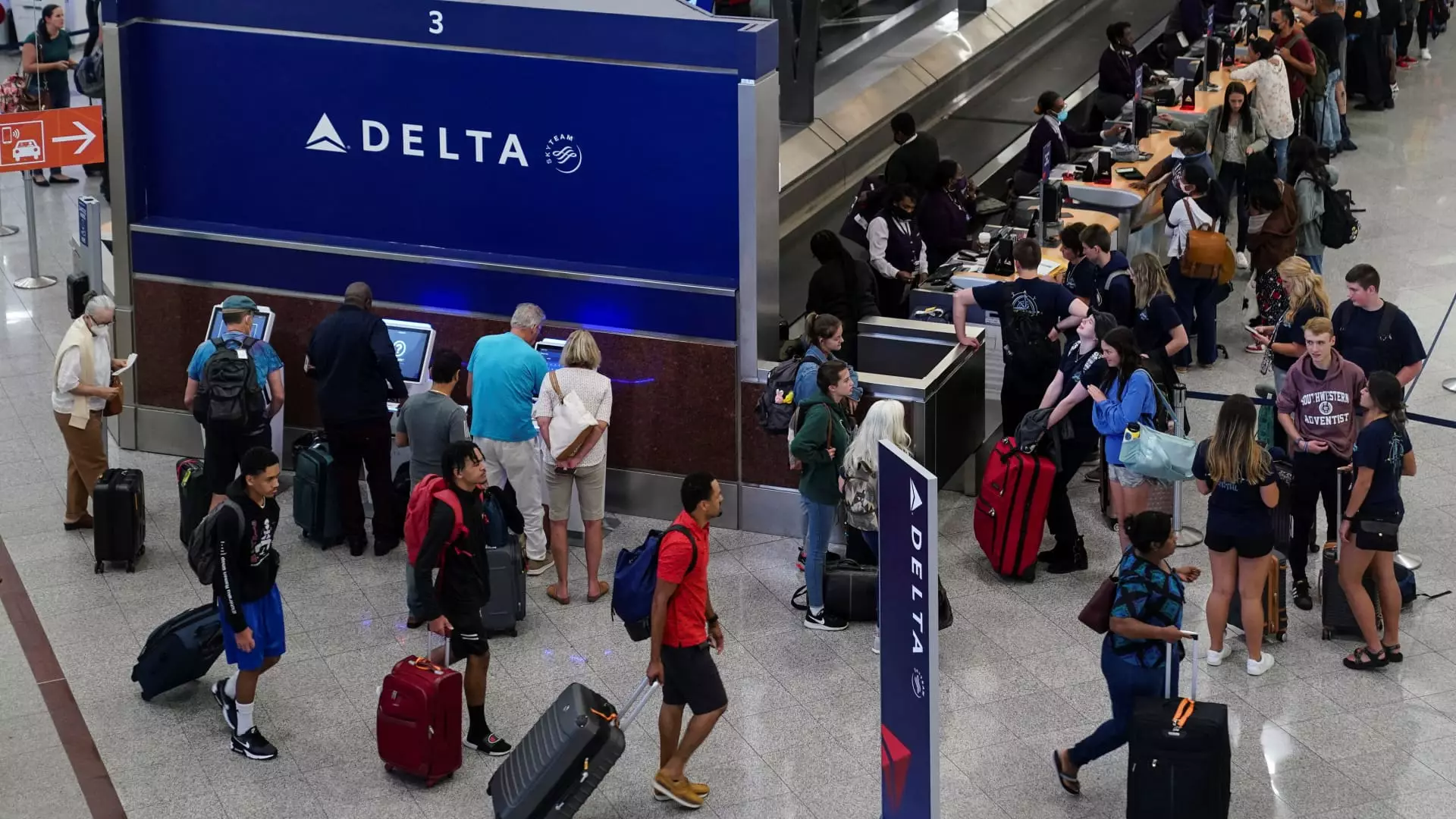In a recent announcement, Delta Air Lines has painted an optimistic picture for the near future, projecting that sales will experience significant growth by 2025. The company credits this anticipated surge to a robust economy, which has stimulated demand for travel and increased credit card expenditures, particularly in the premium sector. The airline forecasted revenue growth in the mid-single-digit percentage range for 2025, aligning with the expectations of financial analysts who have been anticipating approximately 6% growth. This growth projection is particularly pertinent given the overall economic climate, where consumer spending patterns are pivotal to the airline industry’s recovery and expansion.
However, amidst the positive outlook, Delta has acknowledged that operational costs are expected to rise, albeit at a modest rate. Excluding fluctuations in fuel prices, the carrier expects low single-digit percentage increases in costs next year. Cost management will therefore be a critical focus area for Delta as it navigates the competitive and rapidly evolving airline landscape. The ability to balance rising costs with revenue growth will ultimately define the airline’s financial health and market position in the coming years.
Delta has ambitious plans for expansion, aiming to increase its flight capacity by 3% to 4% next year relative to 2024. This strategy aligns with the airline’s ongoing commitment to meet the demands of a growing customer base. The institution of this growth strategy comes as Delta reaffirms its outlook for the fourth quarter and highlights its long-term aspirations to expand adjusted earnings by 10% yearly for the next three to five years.
Moreover, Delta has established itself as a leading player in the industry, consistently recognized as the most profitable airline in the United States. Central to its success is a fruitful partnership with American Express, generating a projected $7 billion in remuneration in the current year with an ambitious target of reaching $10 billion in the long run. This partnership has not only contributed significantly to Delta’s revenue but has also reinforced its focus on appealing to high-spending travelers. Notably, the airline has skillfully capitalized on the sharp increase in wealth among affluent households since 2019.
While Delta’s outlook on consumer spending is markedly optimistic, it stands in contrast to the subdued projections from other retail sectors. For instance, Target’s recent profit forecast reduction highlights a deceleration in discretionary spending that could reflect broader market challenges. This divergence emphasizes the unique position Delta occupies within the travel marketplace; its focus on luxury and premium services is keeping it insulated from some of the pressures facing lower-end consumer markets.
In addition, Delta’s ability to retain a competitive edge is demonstrated by its aggressive moves to attract premium travelers, with reports indicating that 57% of its revenue now stems from premium seating and loyalty programs, a significant increase from 2010. It is evident that Delta has successfully shifted its business model to prioritize higher-margin offerings, securing its status as a front-runner among U.S. airlines.
A noteworthy attribute of Delta’s evolving strategy is its approach toward cabin segmentation. Traditionally, the airline industry has leaned towards a one-size-fits-all model, but Delta has been transformative in this regard. It has dedicated substantial resources to encouraging customers to pay for premium seating options that were once given away. Glen Hauenstein, Delta’s president, revealed that less than 12% of domestic first-class tickets were purchased directly 15 years ago, a staggering change as now more than 70% are actively purchased—including upgrades after booking.
As Delta continues to innovate, it aims to introduce further segmentation and premium offerings for front-row travelers while still catering to diverse consumer preferences. By breaking down previous classifications like coach class into further specialized tiers—premium economy and extra-legroom options—Delta is poised to capture a larger share of the growing demand for individualized travel experiences.
Delta Air Lines presents a compelling narrative of resilience and adaptability in a competitive market. By focusing on premium customer segments, strategically managing operational costs, and continually innovating its offerings, Delta is well-positioned to navigate the evolving landscape of the airline industry.


Leave a Reply